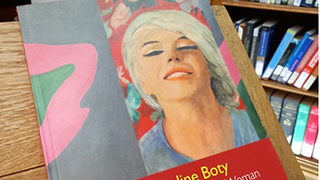‘Shantih Shantih Shantih’ – remembering The Waste Land on its centenary
Josh Hack reminisces on T.S Eliot’s celebrated poem on its centenary

In late 1921, a high-flying Chicago advertising executive wrote a short letter to his mother in Massachusetts. The letter spoke little of his life or business successes, and instead was solely centred around the sordid state of affairs his younger brother – a minor poet living in London – found himself in. “I think that what he needs, both for his mental health and for the sake of his poetry, is solitude for a while”, the concerned older brother wrote. And yet, a little under a year later, the struggling younger brother would produce one of the most famous poems the English language has ever seen: The Waste Land.
“Darkness and depravity run through its every utterance”
This October, it will be 100 years since T.S. Eliot first published The Waste Land in The Criterion – a then little-known literary magazine founded by Eliot himself. I first read the poem at seventeen – shortly after reading Eliot’s first major poem, The Love Song of J. Alfred Prufrock – and it immediately stood out to me. Darkness and depravity run through its every utterance. Its structure is fragmentary and chaotic. But what jumped out most of all was, and still is, the story of its composition. A story of stress, heartbreak and horror which spanned two nations and the best part of a decade.
Western Europe in the late 1910’s was a place marred by death and suffering. The First World War had tarnished everything. But the pain in Eliot’s life had little to do with the War. He was living with a wife constantly on the precipice of death, plagued by illnesses of an unknown nature. He was overworked at his day job at Lloyd’s Bank. He believed his father died in 1919 thinking him to be a failure. And out of these circumstances came The Waste Land: an attempt to transmute immense personal burdens into an equally immense piece of literature, one that would address everything from the bleakness of bombed London streets to marriages ruined by an inability to speak freely.
The Waste Land is an elusive piece of writing. As readers, we constantly feel that we are close to understanding its visions, until it introduces a new personage that completely contradicts our initial impressions of it. Eliot originally planned to name the poem ‘He Do the Police in Different Voices’ – creating the image of one speaker playing multiple dramatic ‘characters’ – but he dropped this title with little explanation during the editorial process. In fact, little in The Waste Land was ever fully elaborated upon by Eliot; his notes on the poem only seem to leave more questions than they do answers. One character, the Greek prophet Tiresias, is asserted to be “the most important personage within the poem”, but no reasoning is offered up to explain why this is the case. And then, in the opening lines of those same notes, Eliot expressed a sense of indebtedness to academic Jessie Weston but never actually elaborated on how this working relationship influenced the poem. This is, according to some, the greatest problem of The Waste Land: it is “a heap of broken images”, a piece of literature that will remain – as asserted by critic Harold Monro – “a pot pourri of descriptions and episodes” for decades to come. So, then, why is it even worth remembering at all?
“A positive future is not an illusion draped in smoke: it’s something manifestable”
Perhaps the answer is to be found in the unhinged voice of The Love Song of J. Alfred Prufrock. In the wake of the Covid-19 pandemic, and with the war in Ukraine currently ongoing, we have, much like Prufrock, become afraid of what the future may bring. In recent weeks, I have heard more of ‘the nuclear option’ than I ever have before. But The Waste Land, despite all its darkness and depravity, ends with an image of possible redemption: “Shantih Shantih Shantih” – a Sanskrit assertion which, in other words, means ‘Peace Peace Peace’. A positive future is not an illusion draped in smoke: it’s something manifestable. We have the tools needed to avoid bringing Eliot’s fantastical visions into reality. Whether we choose to utilise those tools, however, is a different matter altogether.
 Comment / Cambridge students are too opinionated 21 April 2025
Comment / Cambridge students are too opinionated 21 April 2025 Comment / Does the AI revolution render coursework obsolete?23 April 2025
Comment / Does the AI revolution render coursework obsolete?23 April 2025 Comment / Cambridge’s tourism risks commodifying students18 April 2025
Comment / Cambridge’s tourism risks commodifying students18 April 2025 News / News in brief: campaigning and drinking20 April 2025
News / News in brief: campaigning and drinking20 April 2025 Interviews / Meet the Chaplain who’s working to make Cambridge a university of sanctuary for refugees20 April 2025
Interviews / Meet the Chaplain who’s working to make Cambridge a university of sanctuary for refugees20 April 2025






